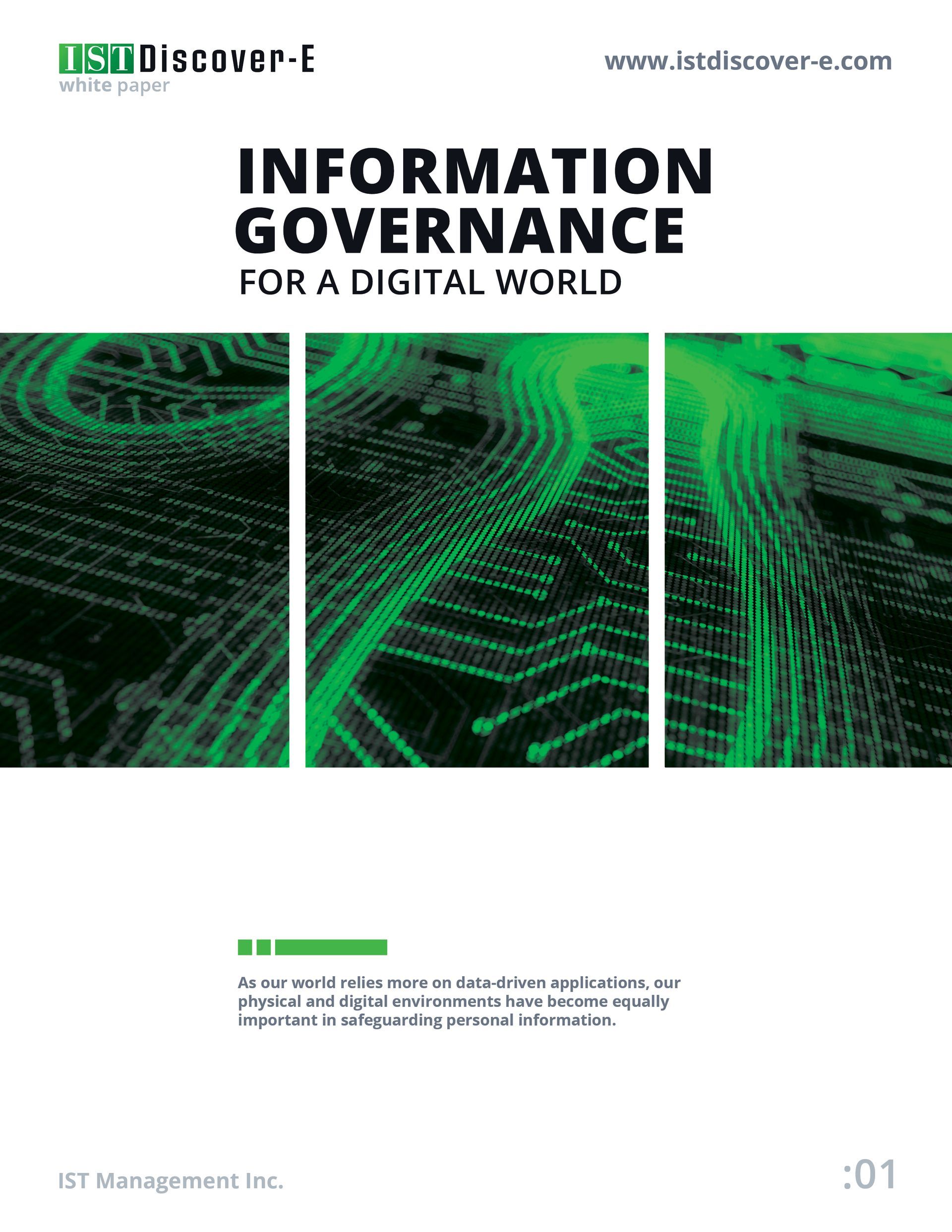Information Governance for a Digital World
Whether or not you notice, you’re in the race to manage your data footprint. Consider the devices one may own- a computer, a smartphone, a tablet, or smart home devices- all reporting and storing data. Now consider the data one organization could hold and extend that to the many devices its employees may use to conduct business and collaborate from many work infrastructures. An organization’s ability to contain and release intel is an ongoing process that can substantially impact all areas of the operation if not handled correctly. With data sprawl quickly growing and unmanaged, businesses will need greater assistance to stay ahead. This realization is why robust Information Governance is vital for companies to remain competitive in the future market and save significantly during litigation.
Information Governance (InfoGov) refers to the map of all data held within an organization, including the tools and applications used, a business’ plan to store data, its deletion policies, and all documentation for reference. This map and its implementation are essential for stakeholders, encompassing many roles within an organization, to make strategic decisions. As companies grow, so does customer data, alerting the need for firmer InfoGov protocols.
The Needle in the Haystack
As businesses continue to invest in technology and hybrid work structures, the amount of unstructured data (user-generated data, like Slack, Gmail, and Outlook) grows and becomes unmanageable. Current reports suggest that 20% of unstructured data is managed incorrectly, and this estimate only partially actualizes all accounted data. With 2.5 quintillion bytes of information created daily and anticipated to double in size between 2022 and 2026, this number will only continue to increase and make holders vulnerable to potential cyberattacks.
Data breaches, brand reputation, consumer trust, and costly fines are all at risk when there is a lack of governance. Using a proactive approach, organizations can maintain organizational accountability, avoid paying hefty fees to locate vital files during litigation, and avoid over-collecting sensitive information.
Connecting the Dots with Forensics: Information Discovery + Management
Data, when appropriately managed, drives business innovation and efficiency. Partnering with a qualified forensics team can clear the storm of data and bring organizational accountability back to the business.
By consulting with a qualified litigation support vendor with eDiscovery and Forensics tools, clients can better analyze the disparate information systems and understand their complete data set, how old it is, and how to remediate non-value/risk data. Understanding data and establishing deletion policies ensures a continuous governance plan is in place and fulfills compliance management. This consultative partnership can better align stakeholders (IT, Business Users, Legal/Risk) that often need to be more connected when considering the entire operation.
In litigation, help from a qualified vendor can result in cost-saving response protocols. With empowered knowledge of your data, clients can better predict the cost of litigation and prevent over-collection, addressing any issue directly and protecting exposure of sensitive, untargeted information.
Forensics can ensure organizations' processes align with defensible InfoGov, no matter what level of data mapping they possess. If clients choose to self-collect or self-preserve their data, forensics can support the workflow, advise a forensically sound method to gather data, and validate existing governance protocols.
InfoGov for a Digital World
A winning governance plan is proactive, not reactive. As data sprawl continues to frame the market and our intellectual footprint, knowing and effectively managing data will keep businesses compliant and accountable for any event. IST Management's consultative approach can fill in the gaps in any organization's current plan with our Digital Forensics and Consulting Team, keeping any infrastructure ahead on Information Governance.





